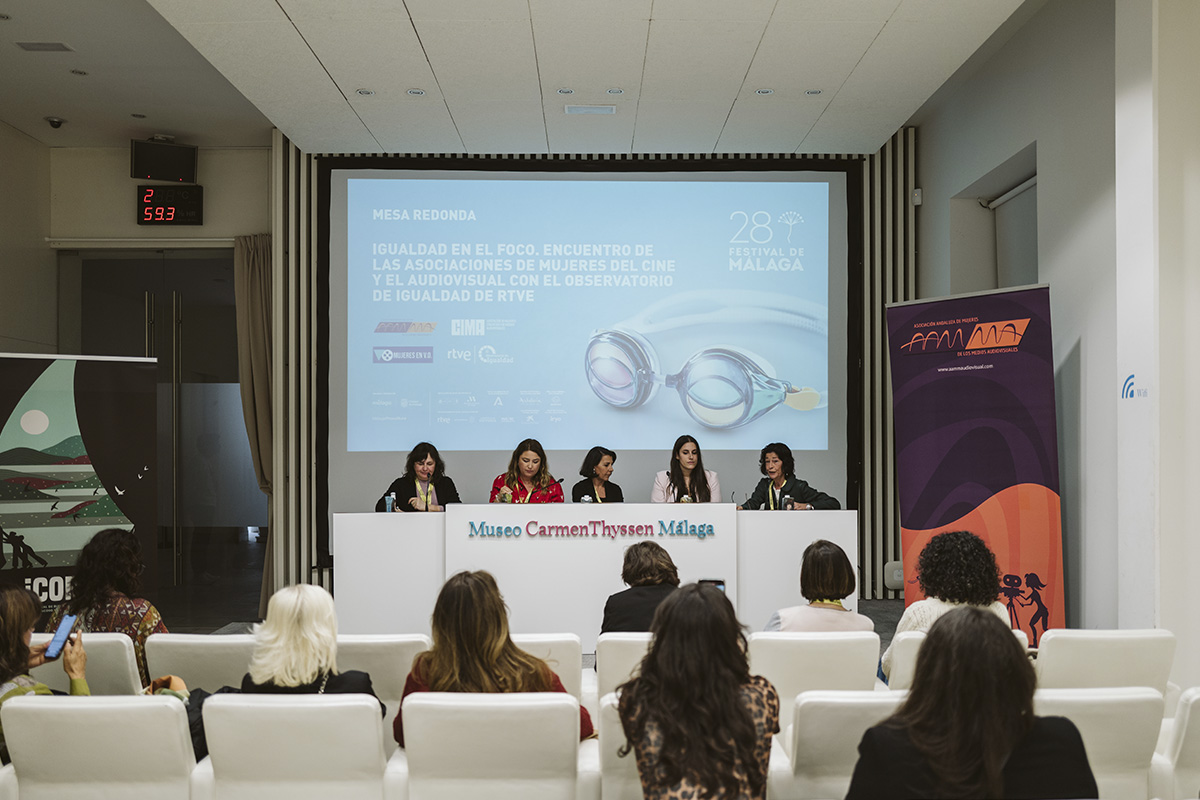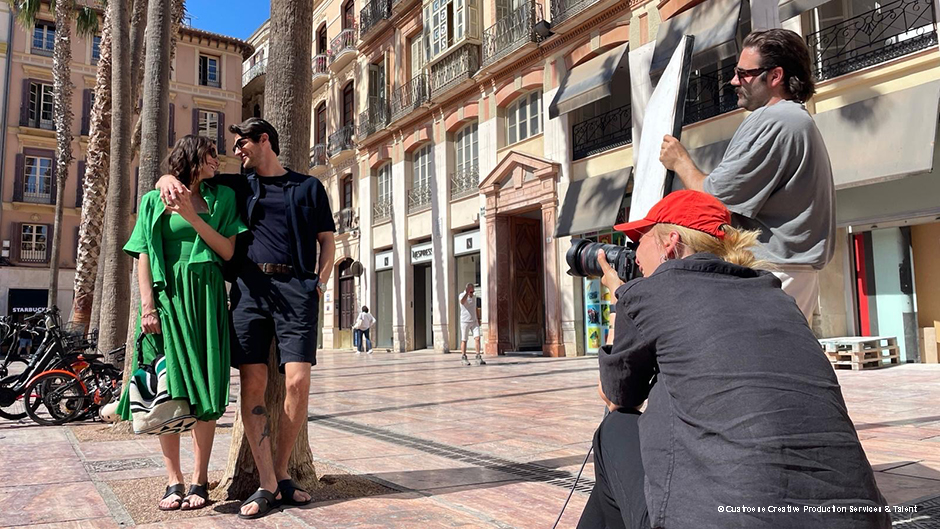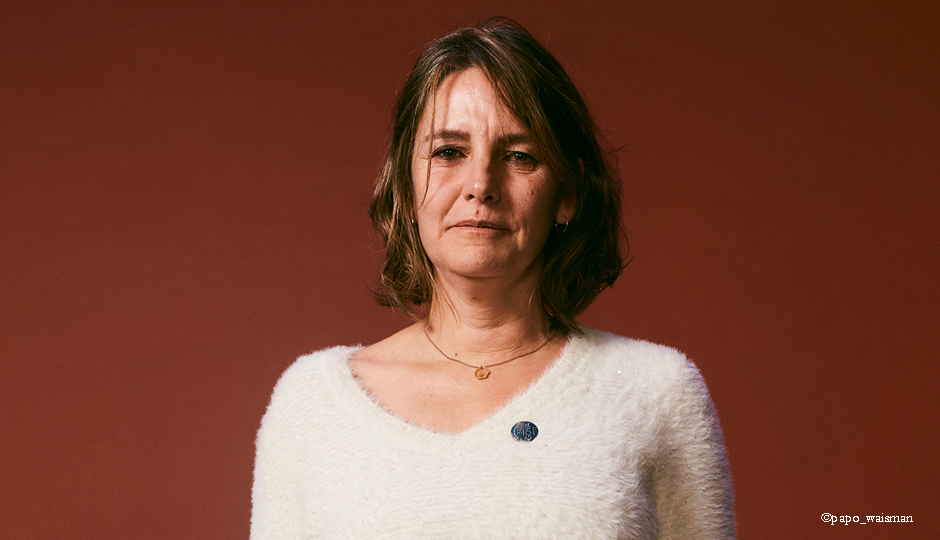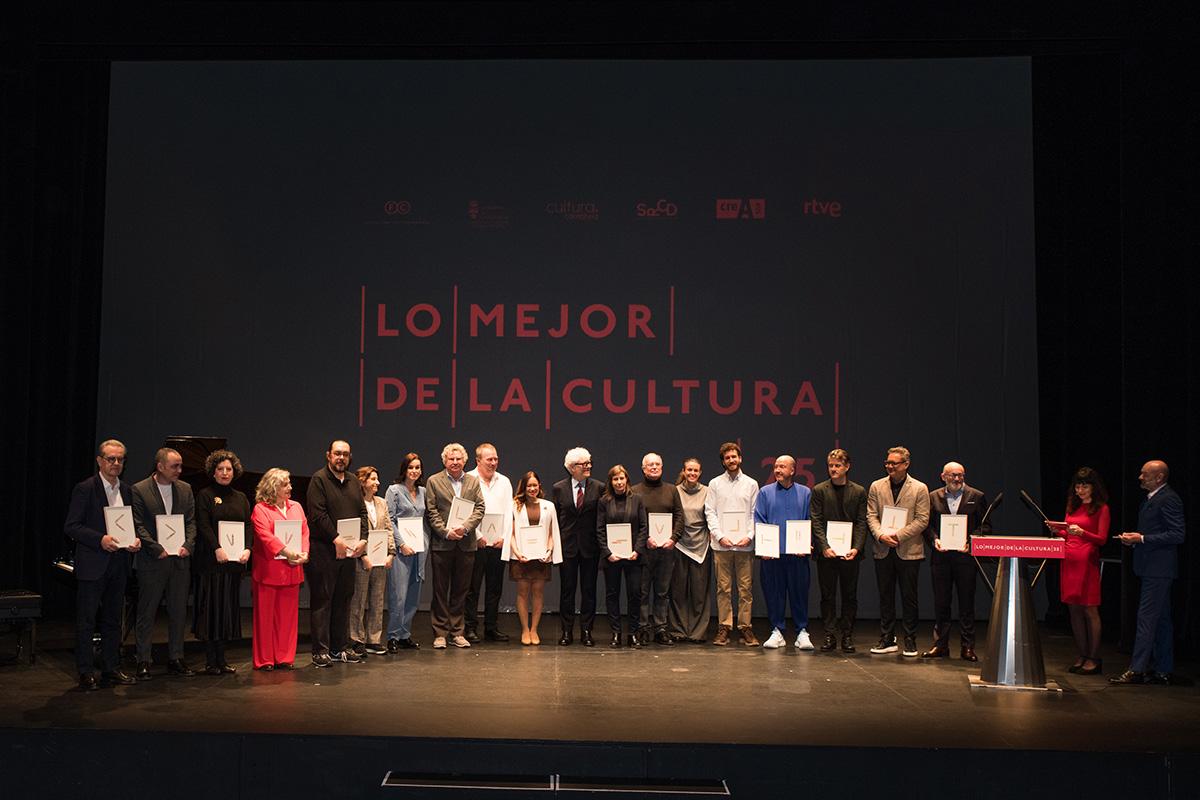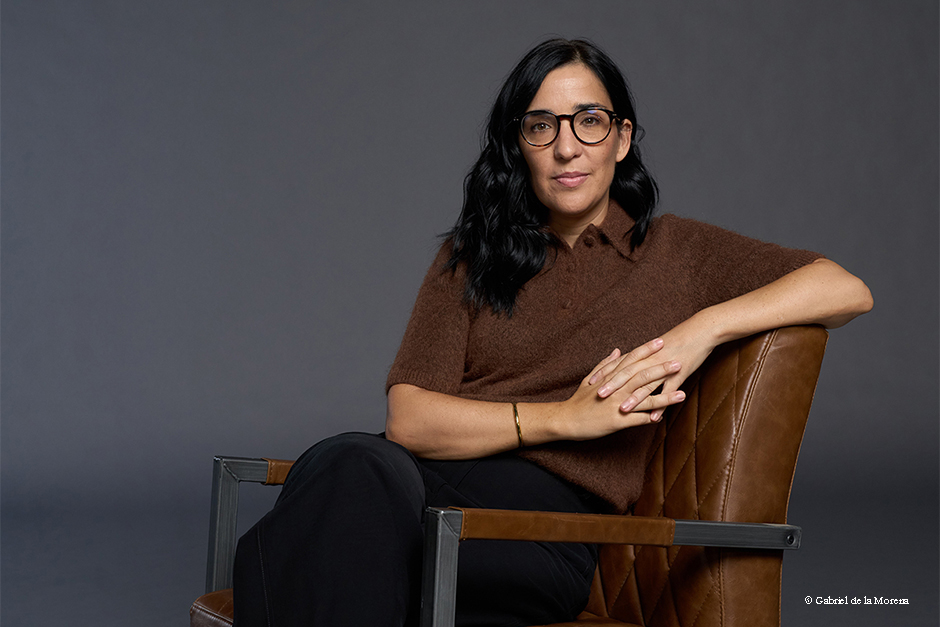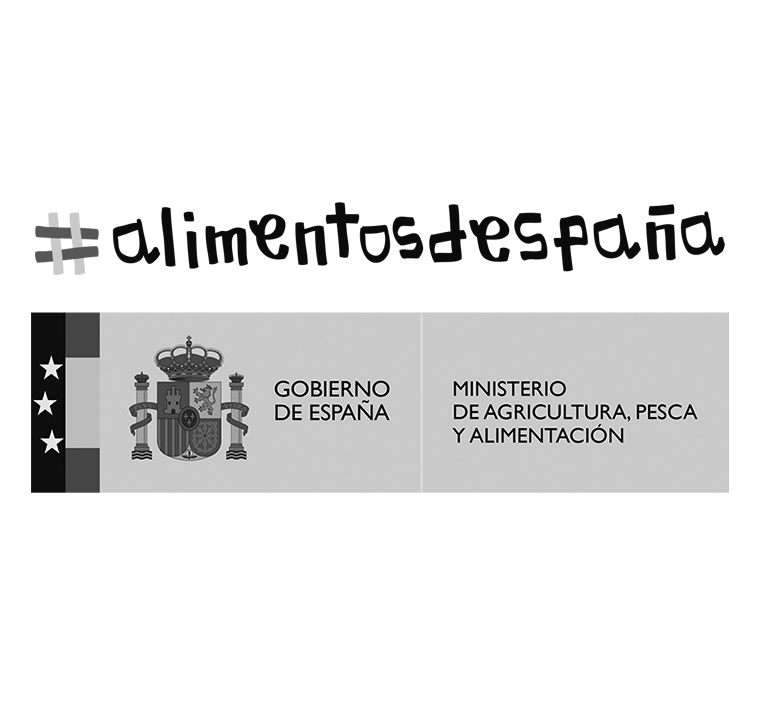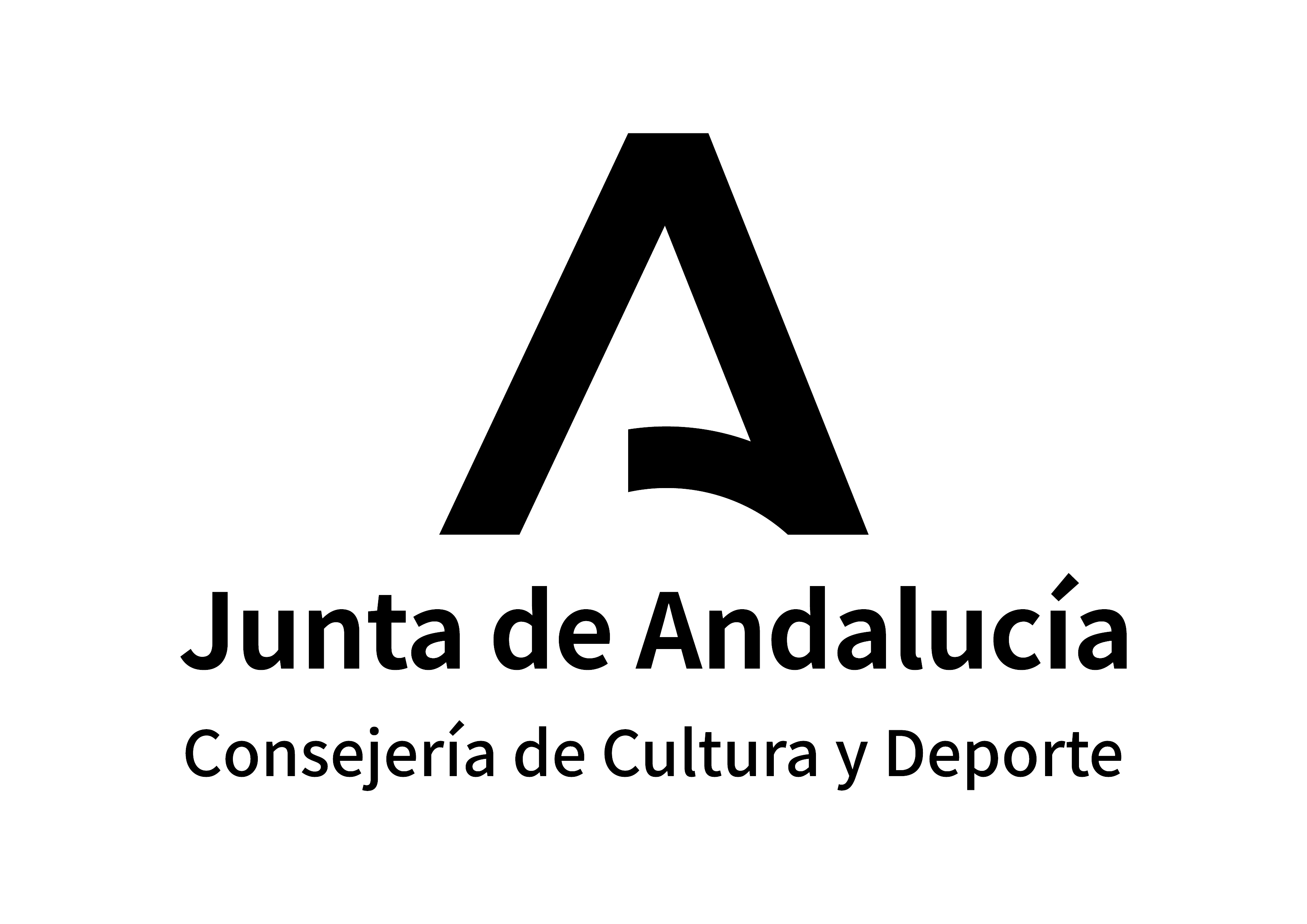TVE's Equality Observatory debates equality policies in public television during the Festival de Málaga
The Carmen Thyssen Museum is hosting the meeting, entitled 'Equality in the Spotlight', with the participation of AAMMA, CIMA and Mujeres in V.O. (Women in V.O.)
On 19 March, the Carmen Thyssen Málaga Museum hosted a series of sessions dedicated to the importance of women in the audiovisual industry. The activities framed within the 28th Festival de Málaga were well represented by various groups working for equality.
The session at 4 pm was led by TVE's Equality Observatory, which organised a meeting entitled 'Equality in the Spotlight', with the aim of debating equality policies in public television.
To this end, a round table was organised, moderated by Mercedes de Pablos, president of RTVE's Equality Observatory, who was accompanied by Beatriz Aparicio Vinacua, head of the Equality Observatory Unit; Pilar Crespo, president of AAMMA; Nuria Vargas, CIMA delegate for Andalusia, and Montse Ogalla, representative of Women in V.O.
As Mercedes de Pablos recalled in the presentation, the Equality Observatory was created as a tool to combat gender violence and to promote female representation in film projects. "It is an instrument that will help us avoid all types of patriarchal violence, all types of structural male violence to do with physical violence, and also discrimination", stated the president of the Observatory, while expressing her concern about all the work that remains to be done.
Beatriz Aparicio Vinacua stressed the need for "special training in globality and the incorporation of criteria related to equality and the prevention of violence". This member of the Observatory also wanted to highlight the work being done at festivals and events such as this one in Malaga, which create "networks and certain climates, and have sensitised staff".
Montse Ogalla also stressed that more achievements are needed. "As public television, we need to guarantee a balance in both co-production and scheduling, and in the purchase of works produced, written and directed by women. We also need to implement measures to ensure that public audiovisual resources are distributed in a truly equitable manner," she said.
Share








